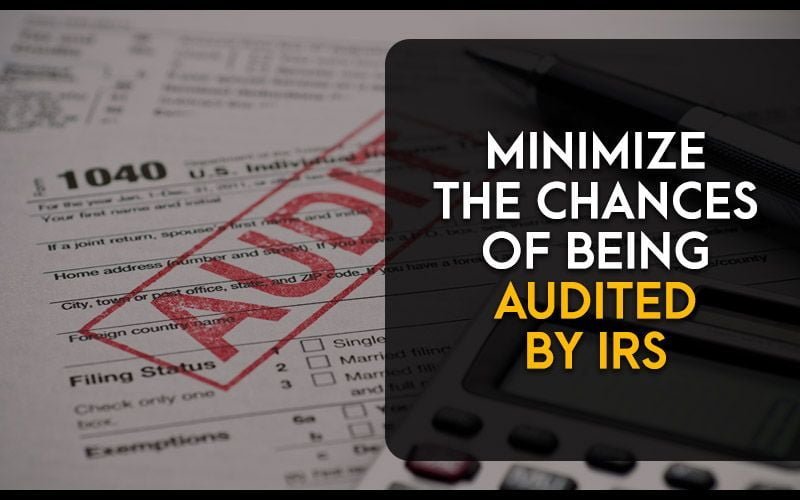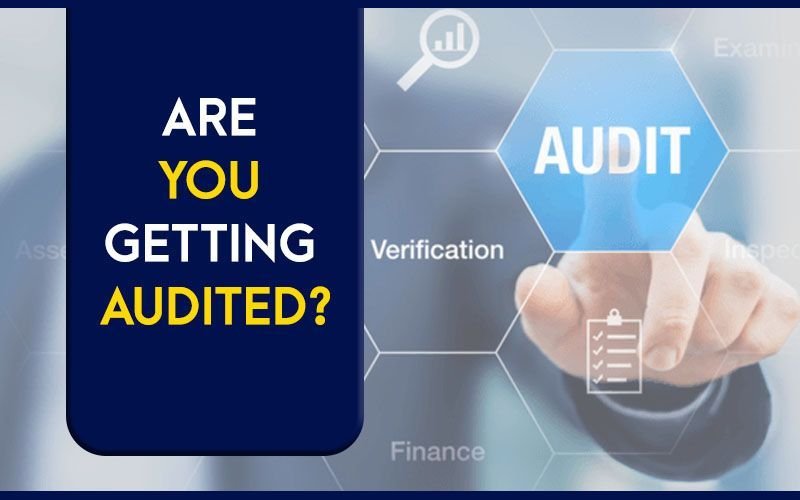Tax audits can be dreaded stressful, expensive, time-consuming. The IRS is raising considerable additional tax bills on the returns the audit performs, and some of those tracking invoices have increased in size. Getting an audit notice from the IRS seems like a dreadful nightmare.
Are you wondering to get the tips to avoid a tax audit by the IRS? Here are some ways to reduce the chance to get a tax audit:
1. File Tax on Time
Remember that, if you owe taxes or you are not sure of the amount you owe or you do not have income or money to pay or you do not owe taxes and think that you don’t need to file a return. That’s wrong. You are still expected to pay before April 15. If you don’t then the IRS can get in touch and charge you penalties on late filing.
If you have no income or no taxes owed, you must file a return. Send them a check with your return of a small amount or explain that you have no income or you do not have taxes owed to show your good faith and lessen your future tax penalties.
2. Avoid Mistakes while preparing Tax Returns
Tax preparation needs a lot of care to handle all information. Even if you are a mathematician, using a tax preparation software like TurboTax or using a calculator you must have to double-check everything. Especially to personal information, signature, and math errors. To avoid these errors carefully check your numbers and match these with the forms that you are going to submit to the IRS.
IRS has upgraded computer systems that simply compare them and look for differences. So, don’t rush to make your return. Make sure you check all information, signed the return, and attached all the required documents. These mistakes can lead to a late refund.
3. Be Honest while Reporting Your Income
This is the main trigger to attract the attention of the IRS and get audited. You should be honest while preparing tax returns and reporting all of your income. IRS already knows your income as they get copies of your W-2 and 1099 forms.
Therefore, be sure to include each one in your tax return. The IRS upgraded computers match the amounts and can trigger an audit against you. If you receive an incorrect amount on these forms, you must immediately contact and request for correction to the issuer.
4. Avoid Paper Filing Method
Paper statements are audited more often than electronic statements. This is because more people handle paper returns as they enter the IRS records system. That creates more opportunities for questions to arise.
The tax code can be difficult to read and understand, so you should consult with a tax accountant.
According to the IRS, do not look for a cheap tax preparer just so you can save money. Some refund preparers are actually scammers who will steal your refund or identity.
5. Claim and itemize Valid Deductions
Be careful while claiming and itemizing valid deductions. You must claim which you are entitled to deduction. The IRS investigates differences in your return with the standards tax returns. If they find that you are claiming invalid tax deductions, they can trigger you an audit.
There are many other things that can trigger an audit but to protect yourself from being audited or get penalties you should “Be honest” with the auditor. If you can’t handle it or leave anything blank you can be spot suspicious in the eyes of the IRS.
To avoid the chance of an audit, you can consult it with a certified Tax Accountant/Advisor who can guide you with better tips to get tax debt relief or he can respond to all inquiries on your behalf as quickly as possible.




